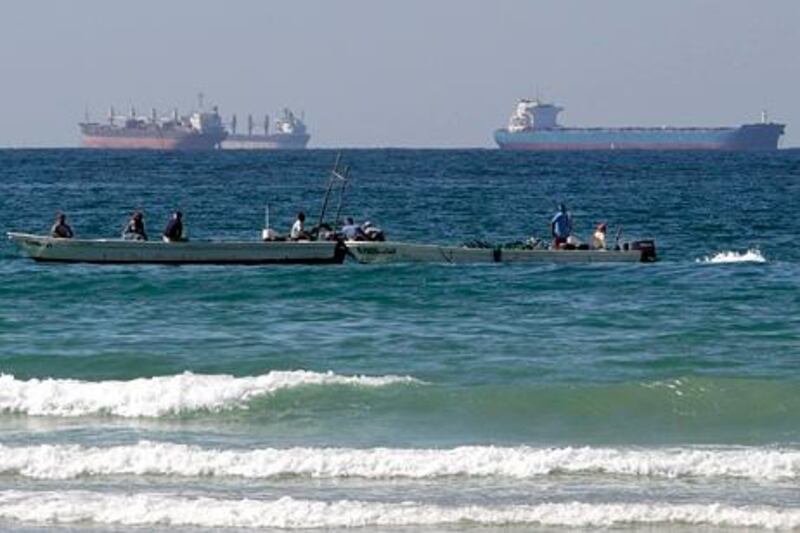Ever since the Iranian Revolution, Gulf policymakers have looked nervously at the Strait of Hormuz, through which a fifth of the world's oil passes.
Yet the focus on assuring oil transit through these narrow waters needs to be supplemented with some straightforward alternatives.
During the 1984-1988 so-called Tanker War, part of the conflict between Iran and Iraq, 546 vessels were damaged in the Gulf, eventually prompting a US naval response.
In 2006, Ayatollah Ali Khamenei, Iran's supreme leader, declared that if the US attacked his country, "definitely the shipment of energy from this region will be seriously jeopardised".
A Revolutionary Guard major-general declared in 2008 that "enemies know that we are easily able to block the Strait of Hormuz for an unlimited period".
And the recent tensions over sanctions and Iran's nuclear programme have led to more jitters about the strait.
Iranian threats over the waterway are designed to raise the perceived cost of action against it, with the side effect of increasing oil prices.
Yet Iran is well-aware of its limited ability to close the Strait of Hormuz for long, as well as the great damage its own economy would suffer. Perhaps more plausible would be a lengthy campaign of sabotage and harassment in the Gulf.
A complete shutdown of the strait could take oil prices to US$150 per barrel or more. Kuwait and Qatar, without any alternative to the waterway, would be losing some $600 million (Dh2.2 billion) daily, while Saudi and Iraqi exports would also be seriously constrained. To take the sting out of these threats, the Gulf countries should cooperate on making their energy infrastructure more interconnected and robust.
The Habshan-Fujairah pipeline, intended to carry 1.5 million barrels per day (bpd) from Abu Dhabi to the Indian Ocean, is a potential first step in a wider Gulf network. In the case of hostilities in the Gulf, insurance premiums might add as much as $6 to the price of shipping a barrel of oil. This would pay off the $3.3bn cost of the Fujairah pipeline within two years.
Saudi Arabia built the 5 million bpd Petroline pipeline to the Red Sea in 1981 and upgraded it in 1987 in response to the Tanker War. A study in 2000 carried out by Rice University in Texas concluded that Petroline could be expanded to 11 million bpd for just $600m. Such an expansion today would be likely to cost twice that amount.
This capacity is enough, not only for all Saudi exports, but for Kuwait's and Qatar's, too. But, despite their proximity, the countries' oil pipelines are not linked. The poor state of relations between the GCC and Iraq forecloses another option - to refurbish and expand the Iraqi pipelines that run through Turkey to the Mediterranean.
A third possibility would be to build another pipeline from Saudi Arabia across the UAE or Oman, or to allow Gulf tankers to unload at Abu Dhabi's Jebel Dhanna port for export via an upgraded Fujairah pipeline.
Gas is even more vulnerable. Qatar ships a quarter of the world's liquefied natural gas through the Strait of Hormuz - with no alternative outlet. A shutdown of oil production would leave all the Gulf countries bar Qatar short of the by-product gas they require to generate electricity. In summer, air conditioning and desalinated water are not luxuries but essential to life.
For political and economic reasons, Qatar does not export gas to Saudi Arabia. Yet an emergency interconnection would give Qatar an outlet for its gas, and ensure Saudi Arabia could generate power during a crisis or free up oil for export through an expanded Petroline.
An alternative would be to increase the capacity of the GCC electricity grid, and to cooperate on strategic water stocks and connections.
There are numerous opportunities to safeguard the Gulf's lifeline. To capitalise on the opportunities requires the GCC to realise its intended purpose: achieving collective security.
* Robin Mills is the head of consulting at Manaar Energyand the author of The Myth of the Oil Crisis and Capturing Carbon
twitter: Follow and share our breaking business news. Follow us





